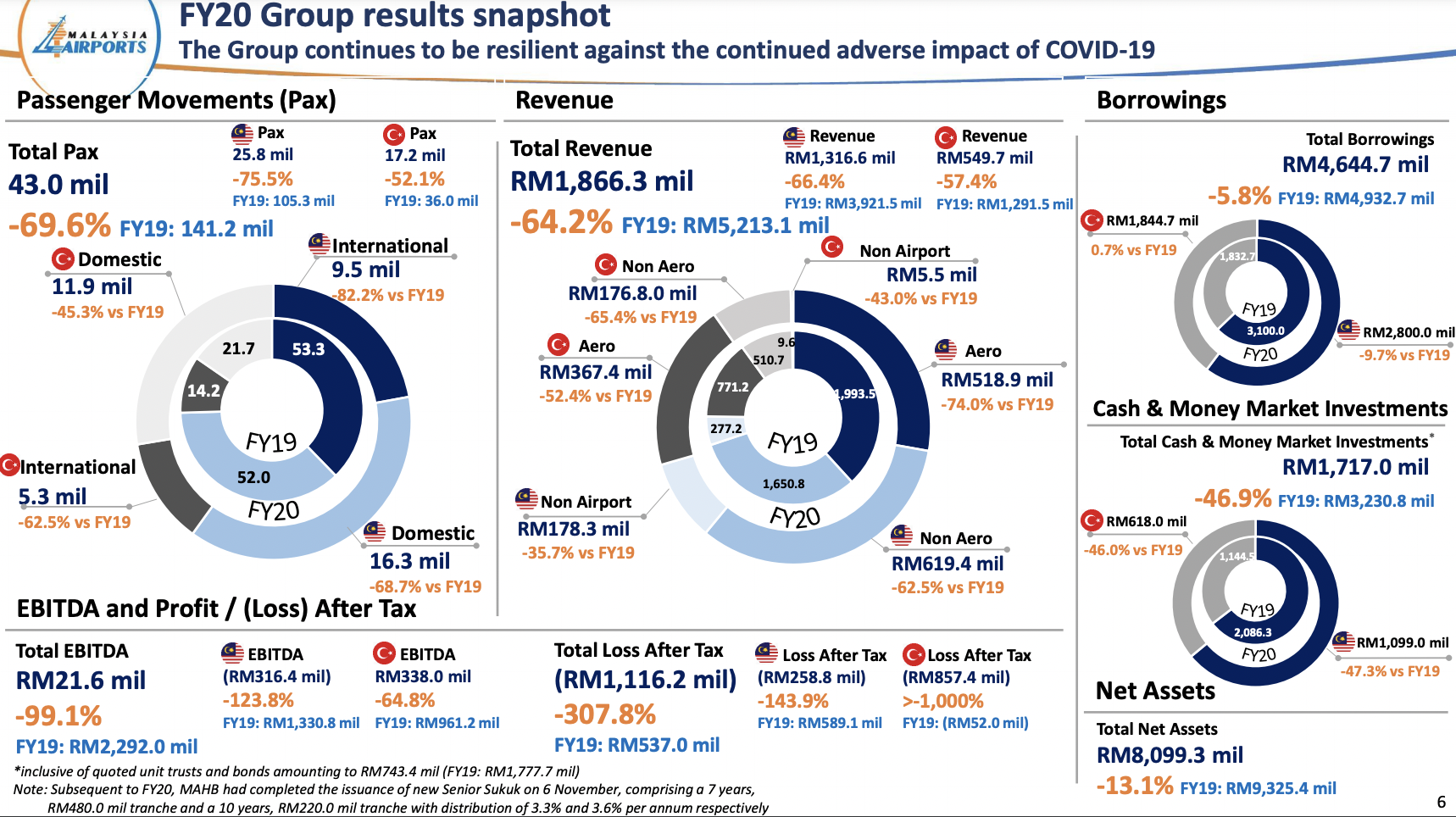MALAYSIA. Malaysia Airports today reported figures for the year to 31 December, with retail revenues falling by -82% to RM153.2 million (US$37.8 million) compared to 2019.
Non-aeronautical revenues fell -63.2% to RM796.3 million (US$197 million) driven by lower retail sales and others commercial revenue (-51.6%).
Group revenue fell by -64.2% to RM1,866.3 million (US$461 million), with a loss after tax recorded at RM1,116.2 million (US$276 million), down -307.8% year-on-year.

 As reported, Malaysia Airports served 43 million passengers across its network (including in Malaysia and at Istanbul Sabiha Gökcen International in Turkey) in 2020, down by -69.6% compared to 2019. International passenger traffic fell by -78.0% to 14.8 million and domestic volumes declined -61.8% to 28.1 million.
As reported, Malaysia Airports served 43 million passengers across its network (including in Malaysia and at Istanbul Sabiha Gökcen International in Turkey) in 2020, down by -69.6% compared to 2019. International passenger traffic fell by -78.0% to 14.8 million and domestic volumes declined -61.8% to 28.1 million.
The key location, Kuala Lumpur International, recorded a -78.9% fall in passenger traffic to 13.2 million passengers while other airports in Malaysia recorded an aggregate decline of -70.6% to 12.6 million passengers. The company said: “The domestic sector remains pivotal in the traffic recovery for Malaysia operations, contributing 63% of the total passenger traffic.”
Istanbul Sabiha Gökcen has been showing “positive recovery signs” following the relaxation of travel restrictions in June. It reached a peak recovery rate of 73% of pre-COVID 19 levels in October, and in some months last year achieved 50% levels of the corresponding month in 2019.
The company said: “The distributions of vaccine across the globe beginning in December have given hopes of upturn for the industry. Malaysia and Turkey have begun the first phase of vaccination this month and in January respectively. Other positive efforts have also been initiated including the Reciprocal Green Lane / Travel Corridor Arrangement (RGL/TCA) between Malaysia and Indonesia, as well as the Safe Tourism Certificate programme by the Turkish government.”

Group Chief Executive Officer, Dato’ Mohd Shukrie Mohd Salleh said: “We did not deviate from our earlier aim of achieving excellence at Kuala Lumpur International because it is crucial to ensuring that the airport is future ready. The initiatives to optimise operational excellence and improve service levels did not hinder the group’s efforts to manage its cost structure.
“Throughout the year, the group aggressively reduced expenses and attained a -36.3% reduction in total costs which translated into RM1,155.7 million worth of savings, surpassing the 20% target.”













